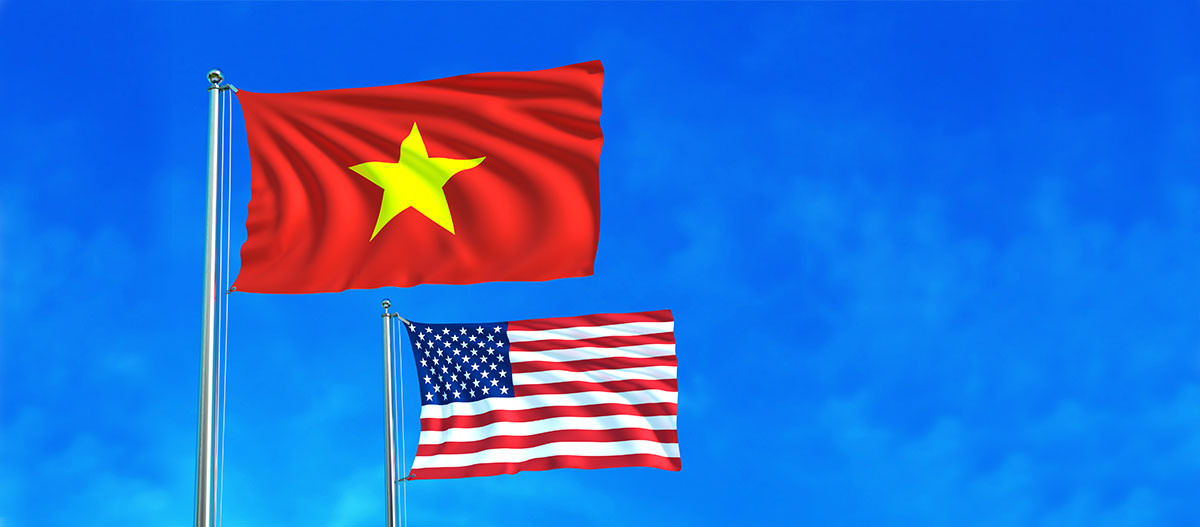With a flurry of high-level official visits, the Biden administration has been striving to show its commitment to Southeast Asia and the wider Indo-Pacific region.
Except for the president himself, almost all top leaders of the US administration have visited countries in the region over the past few months, including Secretary of State Antony Blinken, Defence Secretary Lloyd Austin and Deputy Secretary of State Wendy R. Sherman.

The recent visit by Vice-President Kamala Harris to Vietnam and Singapore is the latest addition to the list.
The Biden administration is carefully working to gather support for its Indo-Pacific strategy in Southeast Asia, which is complemented by greater economic and military engagements with countries in the region.
Vietnam and Singapore stand out in the list of focus Asean countries, with Indonesia and the Philippines also figuring prominently. In the wider Indo-Pacific region, Japan, India and South Korea (and Australia via Quad) are given considerable attention.
Showcasing the priorities of the new US administration, Blinken and Austin visited Japan for a Two-Plus-Two dialogue with their counterparts in March. That was the first overseas visit by Biden administration officials.
They also visited South Korea. On July 27 and 28, Blinken visited India, where, during a joint press conference with his Indian counterpart, S. Jaishankar, he stated, "there are few relationships in the world that are more vital than one between the US and India".
This was followed by Austin's visit to Vietnam, Singapore and the Philippines late last month. This was a landmark visit on several counts. As US-Philippine relations had soured during the Trump administration, it was important to see signs of improvement during Austin's visit.
He met Philippine President, Rodrigo Duterte. Duterte's decided to recall the abrogation of the Visiting Forces Agreement. He also reaffirmed the importance of the US-Philippines alliance.
That was one of the biggest diplomatic victories for the US in Southeast Asia in years as Duterte had tried to befriend China at the cost of the Philippines' long-standing partnership with the US.
Sherman also visited China from July 25 to 26. Even though the outcome of the visit was not entirely positive, it worked to convey to the US' Asian allies that despite their differences, it tried to engage China as well and was not hostile to the idea of engaging with Beijing on diplomatic dialogues.
The ongoing US-China rivalry is dreaded by many in the region. Southeast Asian countries are not willing to choose between the US and China. The support for rules-based order and preservation of strategic equilibrium is growing nonetheless. US efforts are directed towards providing strong assurances to countries in the region that it is a reliable security provider.
Biden seems not only focused on China, but is also strengthening channels of strategic communication with Asean countries. The US' vaccine donation and supply drive is also a part of its efforts to generate greater goodwill in the Asean region.
Suffice to say, Biden's policy is not entirely centred on China. Instead, it is trying to develop a multi-pronged policy by partnering with like-minded countries.
This includes efforts to draw Vietnam closer and further consolidate ties with Singapore. Harris visiting the same countries that Austin visited just a month ago highlights sustained US effort to extract tangible strategic and economic gains.
Given China's ever-growing aggression towards the countries and activities in the South China Sea, Vietnam has emerged as one of the focal countries in the US' Southeast Asia outreach.
The Biden administration is not oblivious to the importance of Asean centrality for its members. This explains why Harris reiterated the US' commitment to the Asean Outlook on the Indo-Pacific and keeping Asean at the centre of its Indo-Pacific policy in Singapore.
That said, the Biden administration's decision to withdraw from Afghanistan has led to debates about the US' reliability in other regions, including East, Southeast and Northeast Asia.
Reports have emerged in Chinese media about the Biden administration's flip-flops in Afghan-istan and the message it conveys to the US' Asian friends and allies.
There is no doubt that the US should be held accountable for its unilateral decision to withdraw from Afghanistan without thinking through the consequences, but its efforts to engage Southeast Asia (and the wider Indo-Pacific region) must be acknowledged.
True, Afghanistan is not Vietnam, as Biden said, and the Taliban cannot be compared with any state actor in the Indo-Pacific region. Still, chances are that more than its commitment, America's policy endurance will be scrutinised by its friends in the region.
Clearly, walking an extra mile to convince friends and partners about America's long-term commitment and endurance is in order. How Team Biden deals with this challenge remains to be seen.
Twitter: @rahulmishr_
The writer is a senior lecturer at the Asia-Europe Institute, Universiti Malaya, where he heads the European Studies programme. He is also associated with the university's Centre for Asean Regionalism.
This article was first published on the New Straits Times - 31 August 2021
Last Update: 23/11/2021